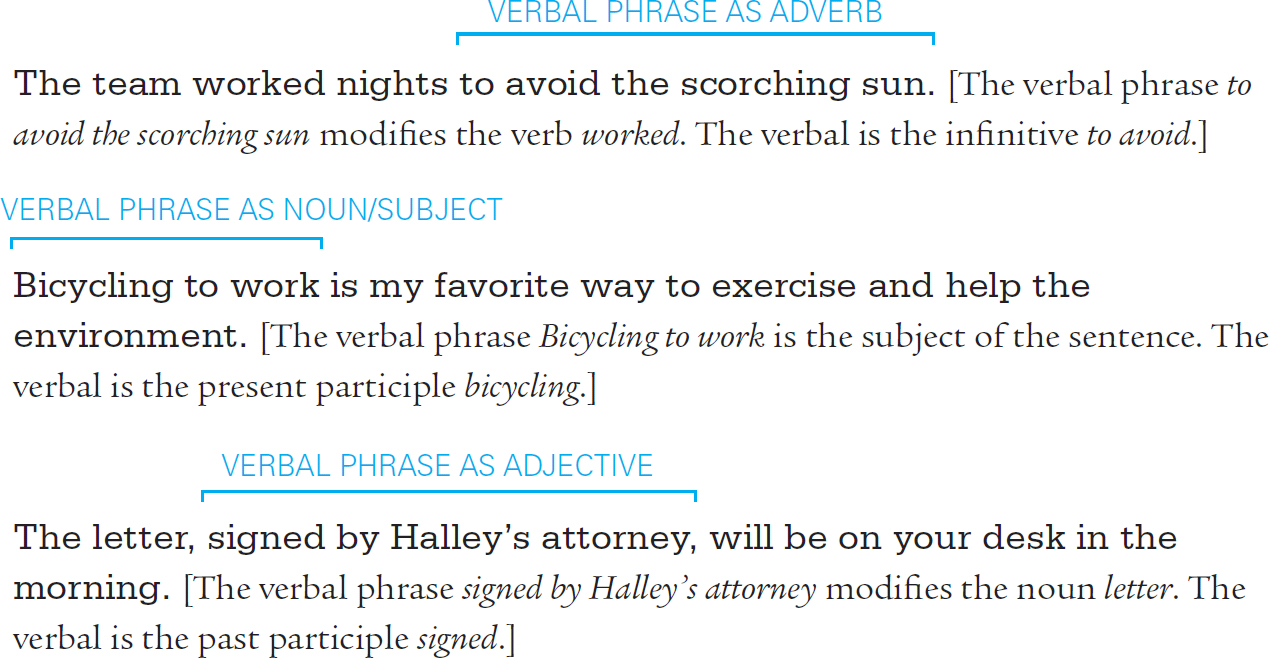4 | Clauses and Phrases
4|Clauses and Phrases
Clauses and phrases are word groups that have a specific function in a sentence. Clauses have both a subject and a verb; phrases do not.
4aClauses
Clauses can be independent or dependent (subordinate). An independent clause contains a subject and a verb, expresses a complete thought, and can stand alone as a complete sentence. Independent clauses are often referred to as the main clause in a sentence.

A subordinate clause looks very similar to an independent clause, with a subject, a verb, and a complete thought, but it cannot stand alone as a sentence because it opens with a subordinating conjunction.
A subordinate clause may be joined to an independent clause for grammatical correctness.

4bPhrases
Phrases are groups of related words that do not contain a subject and a verb.
Prepositional Phrases
A word group that begins with a preposition and ends with a noun is called a prepositional phrase. The noun in the prepositional phrase is the object of the preposition. Prepositional phrases can modify nouns or verbs.

Verbal Phrases
Verbals look like verbs, but they do not function as verbs in a sentence. Verbals include infinitives (to + verb), present participles (verb form ending in -ing), and past participles (verb form usually ending in -ed). (For more on participles, see 8.)
| INFINITIVE | PRESENT PARTICIPLE | PAST PARTICIPLE |
| to walk | walking | walked |
| to look | looking | looked |
| to drive | driving | drove |
Verbals can be used on their own or in verbal phrases, which consist of the verbal plus any related words. Both verbals and verbal phrases can act as nouns, adjectives, or adverbs.

Appositive Phrases
An appositive adds information to a noun or pronoun by identifying it in a different way. An appositive can be a single word or a group of words, sometimes called an appositive phrase.

Absolute Phrases
An absolute phrase is an expression, usually a noun followed by a participle, that modifies an entire clause or sentence and can appear anywhere in the sentence.
EXERCISE 4-1 Identifying Phrases and Clauses
Label each underlined word group in the following sentences as main clause, subordinate clause, prepositional phrase, verbal phrase, appositive phrase, or absolute phrase. Example:
Spending the night in an ice hotel is on my bucket list.
I will do well on the test because I studied for three hours.
The car, a 1957 Chevy, gleamed like it just came off the assembly line.
After searching all morning, we gave up on finding the lost earring.
We exited the house hurriedly, dinner still steaming on the table.
The Inca site of Machu Picchu is undergoing restoration.
The historic city is situated over 7,000 feet above sea level, its terraced fields reaching as high as the clouds.
Built by the Incas around 1450, Machu Picchu existed unknown to outsiders for centuries.
American Hiram Bingham, who came upon the site in the early twentieth century, embellished the story of his discovery.
The city, a UNESCO World Heritage Site, has been open to tourists since 1911.